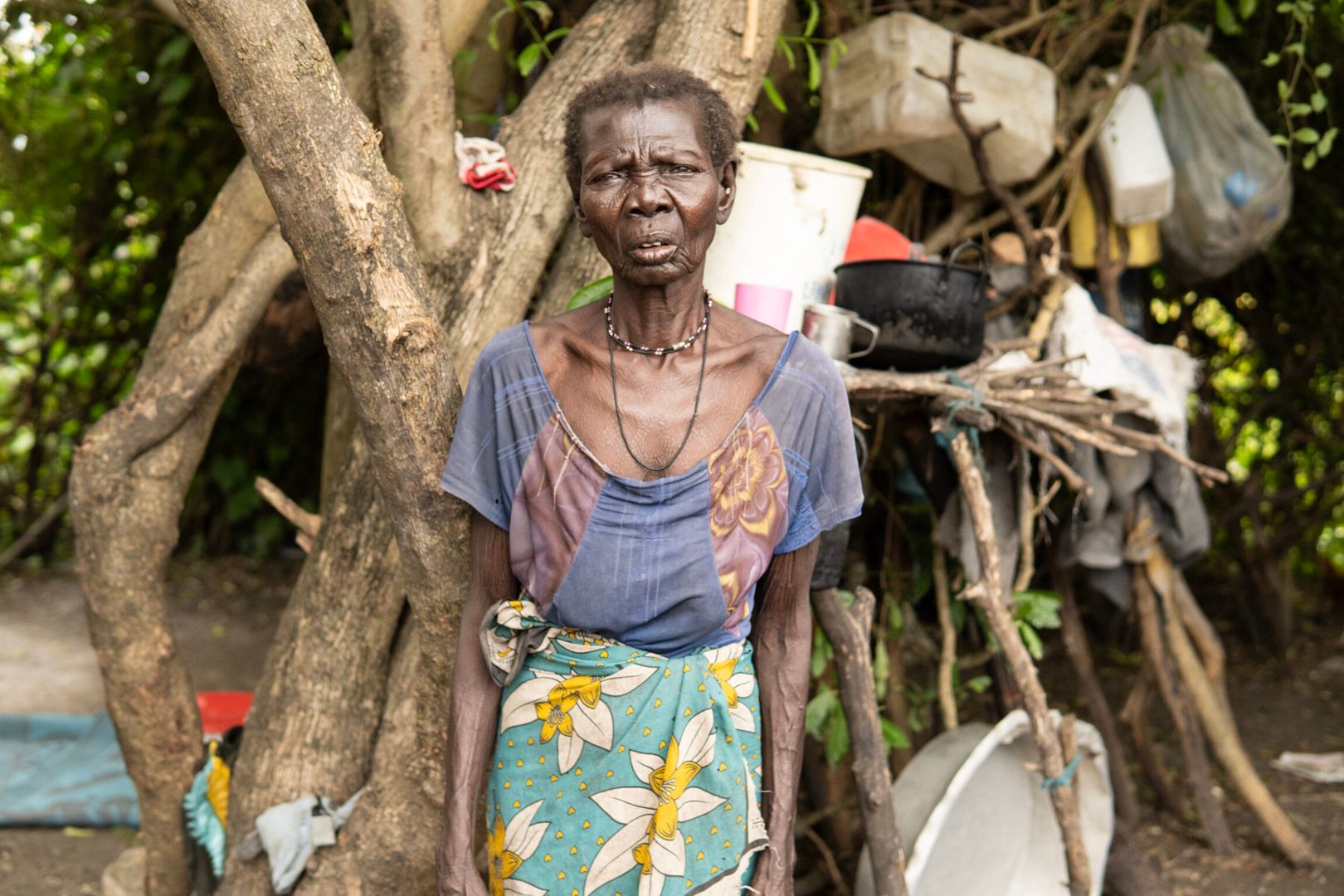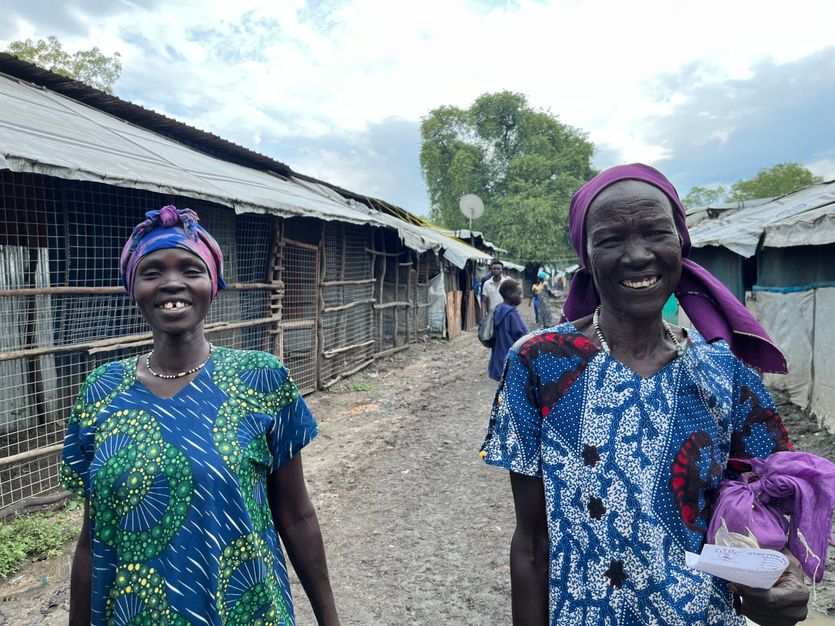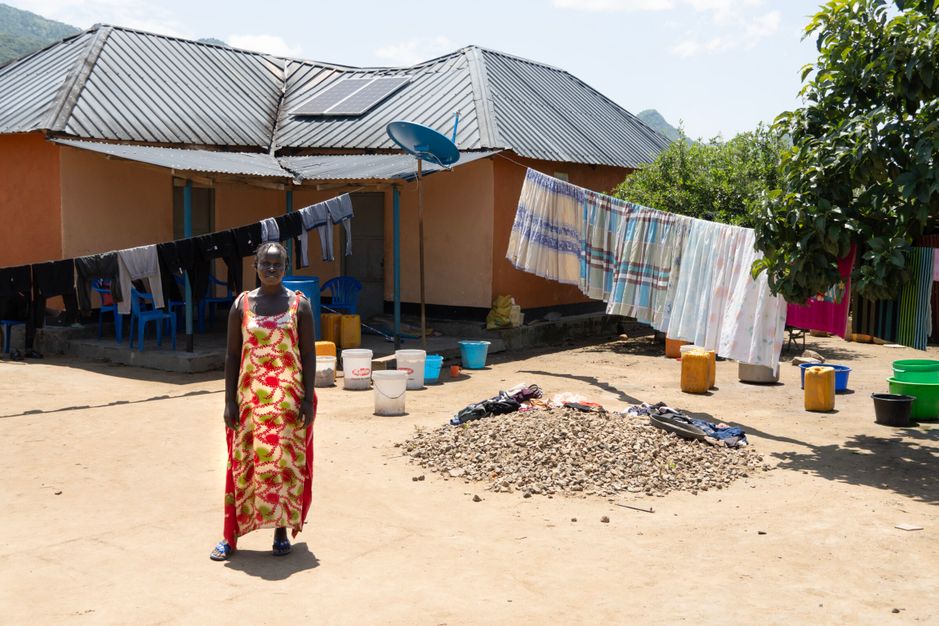After a series of attacks that claimed her husband and two sons, Alyab Ngangdong was paralyzed by the trauma she had experienced. But as she arrived in a new town a friendly resident took her in – and with cash support from the EU, she is getting on her feet again.
Alyab Ngangdong speaks loudly and with determination. The probably-around-60-year-old woman is hard of hearing – and speaks partly through her neighbour, Sadia. It was Sadia who looked after her when she first arrived in the town of Pibor in eastern South Sudan.
“Sadia took me in. She could see that I needed someone to help me,” says Alyab.
Alyab has been forced to leave home three times – first her childhood home in the village of Maruo. The village was attacked by a neighbouring community and her husband and both her sons were killed. The attackers – or ‘the enemy’, as Alyab calls them – did not stop at killing; they also abducted children. So Alyab took her daughter and fled. They made two stops for safety after leaving Maruo, but each time they were attacked again – and eventually she gave up village life and fled to Pibor town.
“I was traumatised when I got to Pibor. I was sick. I couldn’t do anything,” says Alyab. In fact, she was so affected by her experiences that she couldn’t look after herself and her daughter.

At first members of the local church chipped in what little they had to provide for Alyab and her daughter – and Sadia helped her establish a hut of her own next to Saida’s. Which is how they became neighbours.
“I feel safe here. There is no enemy in Pibor,” says Alyab who further explains that whereas she started to recover mentally after arriving in Pibor, there was still one big adversary: hunger. They were struggling to find food.
“There’s hunger here. And I don’t have the energy to collect firewood and sell so I can buy food,” she says and adds that she also can’t do any farming because of her fragile constitution. Even light farming is too exhausting.
She explains that Saida recognised her as one of the vulnerable persons in the community – and told others that she had someone living with her in need of help.
“And that way I got support,” says Alyab.
The support Alyab has received in 2024 is from the European Union – managed by DanChurchAid in South Sudan and distributed by the South Sudanese NGO Nile Hope in Pibor.
Alyab has received 311,000 South Sudanese Pounds (app. €93) three times. And the money has been a lifesaver, says Alyab. She is now feeling much better than before. She can go to the market and buy food and other necessities. And this also benefits her daughter.
After they arrived in Pibor her daughter fell pregnant and has given birth to twin boys. She faced complications during delivery and still hasn’t recovered – this means that she is not allowed to lift or carry heavy things. In other words, neither Alyab nor her daughter can do any physical work.

“The money I receive is for my daughter, my grandchildren and myself – and for everyone who has helped us.”
“My daughter needs medication and I can buy that for her. I also want to send her children to school so that they can provide for themselves and their mother one day in the future,” says Alyab whose hopes for tomorrow have been rekindled. Hope she had abandoned after fleeing her village and was lying idle and sick in Pibor.
“Honestly, I never thought I’d see another day when I was sick. If it wasn’t for the support maybe now I’d be dead,” she says.
Cash saves lives
Around 510 people received cash in Pibor as part of the EU funded project “Enhancing Food Security and Protection for Returnees and Displaced People” in September. That was the third disbursement of 2024 thereby concluding the cash disbursements for the year.
In total just under 21,000 people have received cash from the EU across five counties in South Sudan – all classified as being in a state of emergency because of food shortages, In an emergency any intervention will have one main objective: saving lives.
By November 2024 it is estimated that 6.3 million people are facing critical food shortages in South Sudan. The support from the EU offers the most vulnerable among them a lifeline.




